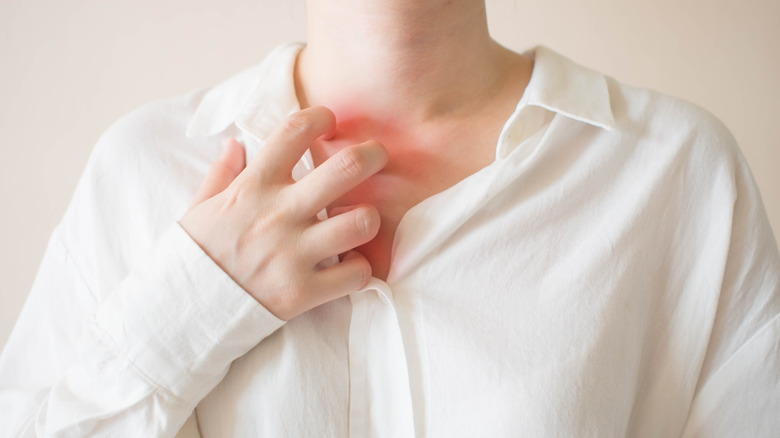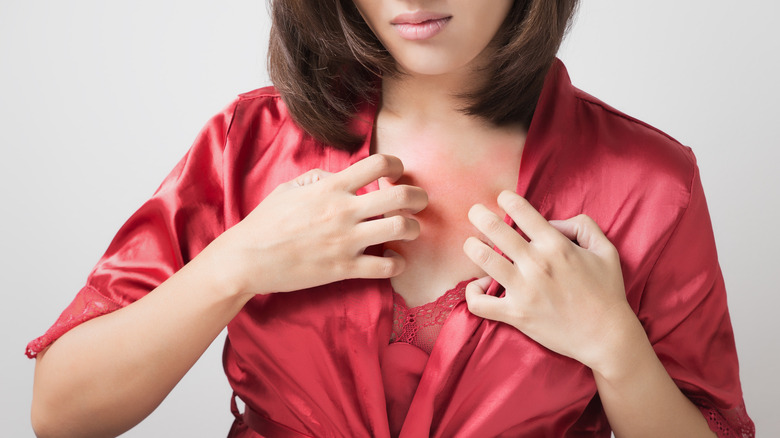What Does It Really Mean When Your Chest Itches?
Suffering from itchy skin can be both an uncomfortable and concerning experience, and can go on to significantly disrupt a person's sleep and overall wellbeing. But what does it mean when a part of your body, more specifically your chest, itches?
According to Medical News Today, itchy skin is commonly referred to as pruritus in the medical field. It can affect any part of the body, but itchiness on a person's chest could be attributed to a number of conditions, some of which are pretty serious.
Per Healthline, one condition that could lead to an itchy chest is allergic contact dermatitis — otherwise known as contact allergies — which occurs when a person's immune system is overly sensitive to the skin being exposed to usually harmless substances such as cleaning products, essential oils, latex, and adhesives. Thankfully, there is treatment available for those who suffer from allergic contact dermatitis, including creams or ointments that contain a steroid.
An itchy chest could also signal a more serious condition
Another condition that could be causing a person's chest to itch is dry skin. As Medical News Daily report, dry skin can be brought on by changes in weather temperatures, excessively washing the skin, and exposing the skin to certain chemicals. Along with itching, symptoms of dry skin can include cracks and ashy or flaky patches on the skin. Those who suffer from the condition are advised to avoid scratching and apply topical moisturizers.
According to Healthline, other potential causes of an itchy chest could be acne vulgaris, psoriasis, and shingles. In more serious cases, chest itchiness could also be a sign of Kidney disease, thyroid cancer, and breast cancer. It is always recommended to pay your doctor a visit if the itchiness on your chest persists or worsens, even after using at-home treatments (via Medical News Daily).
Some at-home remedies and treatments to consider for less serious causes of an itchy chest include using fragrance free detergents, applying moisturizing creams and ointments, lowering the water temperature when bathing or showering, and resisting the urge to itch, no matter how tempting.

